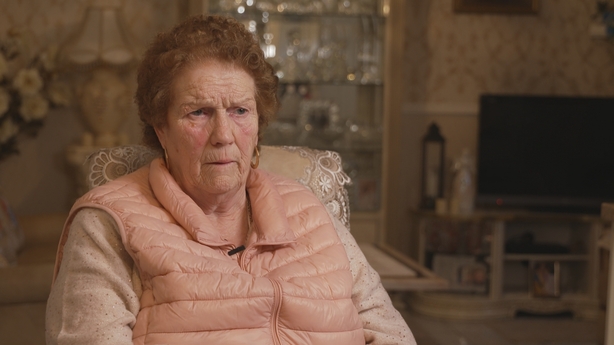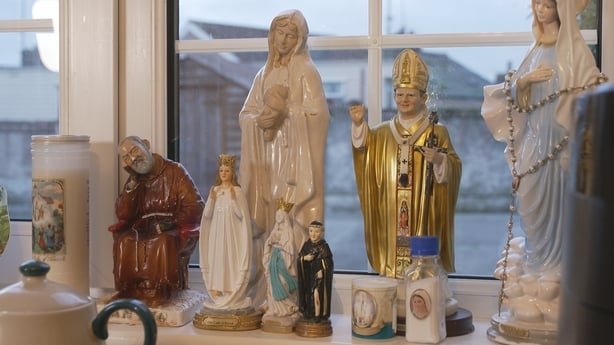A national conference to mark 30 years since the first Irish Primary Health Care Traveller Project (PHCTP) has taken place in Croke Park in Dublin.
The PHCTP - established in 1994 - has enabled Traveller health workers to bridge the gap between members of the community and the health service.
The concept of Primary Health Care was established by the World Health Organization.
In the early 1990s, Dr Missie Collins and then co-director of Pavee Point Ronnie Fay met the Eastern Health Board to propose the initiative.
The board was not convinced that Travellers, especially those with limited literacy, would be able to work on the ground.

"The folks across the table said, Missie, it won't work. I said tell me why. He said because you're not educated and it won't work by Travellers talking to Travellers," said Dr Collins.
The Eastern Health Board eventually agreed to a nine-month pilot project, which enabled Pavee Point to get the views of 85 families about their health needs.
"I suppose, put it this way, if it had been anybody else that went in and asked these questions, they’d have been run out of it," according to Dr Collins.
Over the last 30 years, the Primary Health Care for Travellers project has expanded across the country and some 29 projects are now in operation.
Twenty-five per cent of Traveller women are now screened for breast cancer compared to 13% of women in the general population.
The majority of Travellers also got their information about Covid-19 from Primary Health Care workers.
Dr Collins said that before the project began, there was little knowledge in the community about biology and this became evident watching a film over 30 years ago in Pavee Point.
"Some of the women there didn't know about their own bodies, even ovaries," she said.
This highlighted the need for a public health initiative to the late Ms Fay.
There was also reluctance and fear about the wider health system amongst Travellers.
Dr Collins explained: "When a Traveller goes into a clinic, the first person they might meet could be the porter.

"If you can't read or write and if that man or that woman is not friendly with you and does not tell you which clinic you’re looking for … you are going to go out that door," she said.
"That spreads rapidly to other Travellers - don't go down to that clinic," she added.
Dr Collins and others escorted people to clinics and check-ups to try and encourage them. That work continues today.
Primary Health Care Traveller Mary Collins does "field work" with around 300 Travellers, which involves visiting different sites to promote and educate them about health.
"You get a lot of accommodation issues and education issues with the children on the sites and the conditions of the sites.
"There'd be a lot of asthma and a lot of diabetes, and lately there's a lot of serious illnesses," she said.
Jim Reilly, whose mother was also a trained Primary Health Care Traveller, believes the visits are particularly important for Traveller men, who are very private and may have difficulty reading and writing.
The anxiety around filling in forms often results in a reluctance in visiting hospitals, doctors, or dentists.
Mr Reilly, who is diabetic, is grateful that trained individuals like Mary Collins can check in and advise him on medication.
In 2010, the PHCTP conducted the All-Ireland Traveller Health Study (AITHS) with over 40,000 Travellers taking part.
Findings from the AITHS indicated the drastic inequalities in health between Travellers and non-Travellers and a need for a National Traveller Health Action Plan.
In 2022, the National Traveller Health Action Plan was published but has not received any new additional core funding since then.
We need your consent to load this rte-player contentWe use rte-player to manage extra content that can set cookies on your device and collect data about your activity. Please review their details and accept them to load the content.Manage Preferences
Anniversary of PHCTP is a positive day - Pavee Point
The co-director of Pavee Point has said the 30th anniversary of the PHCTP is a positive day.
Speaking on RTÉ's Morning Ireland, Lynsey Kavanagh said the key achievements of the project include higher numbers of Travellers accessing BreastCheck and cervical screening.
She praised the persistence of the Traveller primary healthcare projects around the country that are "flourishing" and "thriving" despite a number of challenges throughout the 30 years.
"The fact that Traveller workers themselves have the trust on the ground, they have the rapport, they're living within the community, they have the institutional knowledge, they know the needs, and they're able to work with the health services, to not only identify those needs, but identify the solutions productively and constructively," Ms Kavanagh said.
She added: "If you look at some of the stats, 86% of Travellers receive health information from Traveller primary healthcare projects.
"Travellers from the Ireland Travel Health study, there's low levels of trust with the health services.
"So really the primary healthcare projects are the vital link between health services on one hand, the mainstream services and Travellers on the other and their job isn't to replace but it to complement the mainstream health service."
She said Pavee Point would like to see career progression for Traveller primary healthcare workers around the country into other areas of the health service.







